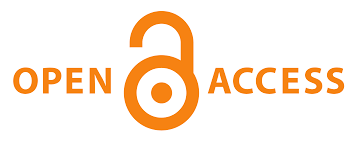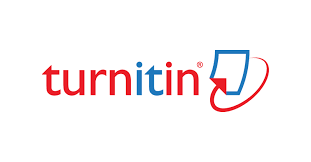Enhancing Critical Thinking Skills in Poetry Writing through Nature-Based Learning Method
Main Article Content
Khalsiah Khalsiah
Teuku Alfiadi
Safriandi Safriandi
Fatmawati Fatmawati
To improve poetry writing skills, it is necessary to use a variety of strategies that encourage students to think critically and conduct in-depth examination. This strategy can considerably increase their originality and proficiency in poetry writing. The Nature-Based Learning Method is used in this study to improve critical thinking abilities, specifically those related to poetry writing. This quasi-experimental study assesses the impact of specific activities under controlled conditions. To ensure accurate and trustworthy data collection, the study employs a Pretest-Posttest Control Group Design, with a pretest administered prior to treatment and a posttest administered thereafter in both the experimental and control groups. The study included 63 students from Malikussaleh University, chosen by purposive sampling. The major data collection tool was a poetry-writing performance exam. Normality, homogeneity, and hypothesis tests were used during the data analysis. The t-test for students' poetry writing skills yielded a significant value of 0.000 < 0.05, rejecting the null hypothesis (Ho) and accepting the alternative hypothesis (Ha). In the experimental group, the average pretest score for poetry writing skills was 53.38, but it climbed to 80.65 following the intervention. Similarly, the control group's average critical thinking abilities score for poetry writing increased from 48.90 on the pretest to 67.65 on the posttest. These findings imply that by improving critical thinking skills, particularly in writing, students can considerably improve their capacity to write high-quality poetry. This enhancement in critical thinking is believed to boost problem-solving abilities and help to create more refined and compelling poetry compositions.
Achilov, O. R. (2017). Improving Students’critical Thinking Through Creative Writing Tasks. In International Scientific and Practical Conference World science (Vol. 4, No. 4, pp. 19-23).
Alsaleh, N. J. (2020). Teaching Critical Thinking Skills: Literature Review. Turkish Online Journal of Educational Technology-TOJET, 19(1), 21-39.
Ameli, K. (2022). Where is nature? Where is nature in nature and outdoor learning in higher education? An analysis of nature-based learning in higher education using multispecies ethnography. Journal of Teacher Education for Sustainability, 24(2), 113-128. DOI: https://doi.org/10.2478/jtes-2022-0020
Amin, S., Utaya, S., Bachri, S., Sumarmi, S., & Susilo, S. (2020). Effect of problem based learning on critical thinking skill and enviromental attitude. Journal for the Education of Gifted Young Scientists, 8(2), 743-755
Annisa, A., & Sutapa, P. (2019). The Implementation of Nature-based Learning Models to Improve Children's Motor Skills. Jurnal Obsesi: Jurnal Pendidikan Anak Usia Dini, 3(1), 170-182.
Barrable, A. (2022). Independent Thinking on Nature-Based Learning: Improving learning and well-being by teaching with nature in mind. Crown House Publishing Ltd.
Cottrell, S. (2023). Critical thinking skills: Effective analysis, argument and reflection. Bloomsbury Publishing.
Creswell, J. W., & Creswell, J. D. (2017). Research design: Qualitative, quantitative, and mixed methods approaches. Sage publications.
Facione P. A. (2015). Critical Thinking: What it is and why it counts. Measured Reasons and the California Academic Press, Millbrae, CA.
Fadhillah, N., Siregar, E. A., Lestari, U. H. P., Rahman, F., & Khalsiah, K. (2024). Society 5.0 in Education: Interactive Learning through Digital Media Integration on Teaching Speaking. Scope: Journal of English Language Teaching, 9(1), 392-402.
Gormley, W. T. (2017). The critical advantage: Developing critical thinking skills in school (Vol. 8). Cambridge: Harvard Education Press.
Guite, M. (2020). Faith, hope and poetry: Theology and the poetic imagination. Routledge
Hanauer, D. I. (2012). Meaningful literacy: Writing poetry in the language classroom. Language Teaching, 45(1), 105-115.
Ilham, M., Rahman, F., Kholid, M., & Sari, D. D. (2024). The Efficacy of e-Guru Application in Boosting Learning Effectiveness: Does It Deliver Results?. International Journal of Social Learning (IJSL), 4(2), 197-209. DOI: https://doi.org/10.47134/ijsl.v4i2.257
Ilham, M., Rahman, F., Sari, D. D., & Annisaturrahmi, A. (2023). Enhancing Preschool English Vocabulary Through Multimedia Tools: Insights from a Mixed-Methods Study. Al-Athfal: Jurnal Pendidikan Anak, 9(2), 93-102. DOI: https://doi.org/10.14421/al-athfal.2023.92-02
Larisa, I., Erlidawati, E., & Rahman, F. (2023). Unlocking Reading Potential: Does English Comics Webtoon Impact Students’ Narrative Text Comprehension?. IALLTEACH (Issues In Applied Linguistics & Language Teaching), 5(2), 99-105. DOI: https://doi.org/10.37253/iallteach.v5i2.8595
Mann, J., Gray, T., Truong, S., Sahlberg, P., Bentsen, P., Passy, R., ... & Cowper, R. (2021). A systematic review protocol to identify the key benefits and efficacy of nature-based learning in outdoor educational settings. International Journal of Environmental Research and Public Health, 18(3), 1199. DOI: https://doi.org/10.3390/ijerph18031199
McLoughlin, N. (2013). Writing poetry. A companion to creative writing, 40-55.
Miller, N. C., Kumar, S., Pearce, K. L., & Baldock, K. L. (2021). The outcomes of nature-based learning for primary school aged children: a systematic review of quantitative research. Environmental Education Research, 27(8), 1115-1140.
Priyanti, N., & Warmansyah, J. (2021). Improving critical thinking skills of early childhood through inquiry learning method. Jurnal Obsesi: Jurnal Pendidikan Anak Usia Dini, 5(2), 2241-2249.
Rahman, F. (2023). What We Talk About When We Talk About Language And Philosophy. Deepublish.
Rahmiaty, Meylina, & Rahman, F. (2022). Instrumen penelitian: panduan penelitian di bidang pendidikan. Yogyakarta: Jejak Pustaka.
Rymanowicz, K., Hetherington, C., & Larm, B. (2020). Planting the seeds for nature-based learning: Impacts of a farm-and nature-based early childhood education program. International Journal of Early Childhood Environmental Education, 8(1), 44-63.
Sari, N. P., Septyanti, E., & Zulhafizh, Z. (2024). Efektivitas Metode Nature Learning dalam Pembelajaran Menulis Puisi pada Siswa Kelas X SMA Negeri 2 Tualang. JIIP - Jurnal Ilmiah Ilmu Pendidikan, 7(1), 998–1004.
Sari, T. P., Dawud, D., & Andajani, K. (2019). Hubungan Kemampuan Berpikir Kritis dengan Kemampuan Menulis Teks Editorial Siswa Kelas XII. Jurnal Pendidikan: Teori, Penelitian, dan Pengembangan, 4(1), 51.Sharadgah, T. (2014, March). Developing critical thinking skills through writing in an internet-based environment. In Society for Information Technology & Teacher Education International Conference (pp. 2178-2185). Association for the Advancement of Computing in Education (AACE).
Warsah, I., Morganna, R., Uyun, M., Afandi, M., & Hamengkubuwono, H. (2021). The impact of collaborative learning on learners’ critical thinking skills. International Journal of Instruction, 14(2), 443-460.
Yanti, N. D., Fadhillah, D., Enawar, E., & Sumiyani, S. (2022). Analisis Kemampuan Berpikir Kritis dalam Keterampilan Menulis Karangan Eksposisi di Kelas V Sdn Cirewed, Kabupaten Tangerang. Berajah Journal, 2(1), 49-57.
Yusuf, Q., Jusoh, Z., & Yusuf, Y. Q. (2019). Cooperative Learning Strategies to Enhance Writing Skills among Second Language Learners. International Journal of Instruction, 12(1), 1399-1412.
Yuzar, E. (2022). Classroom Evaluation: Learners’ Perspectives on The Teaching Approach in A Second Language Writing Course. JETLEE: Journal of English Language Teaching, Linguistics, and Literature, 2(2), 108-122. DOI: https://doi.org/10.47766/jetlee.v2i2.484




